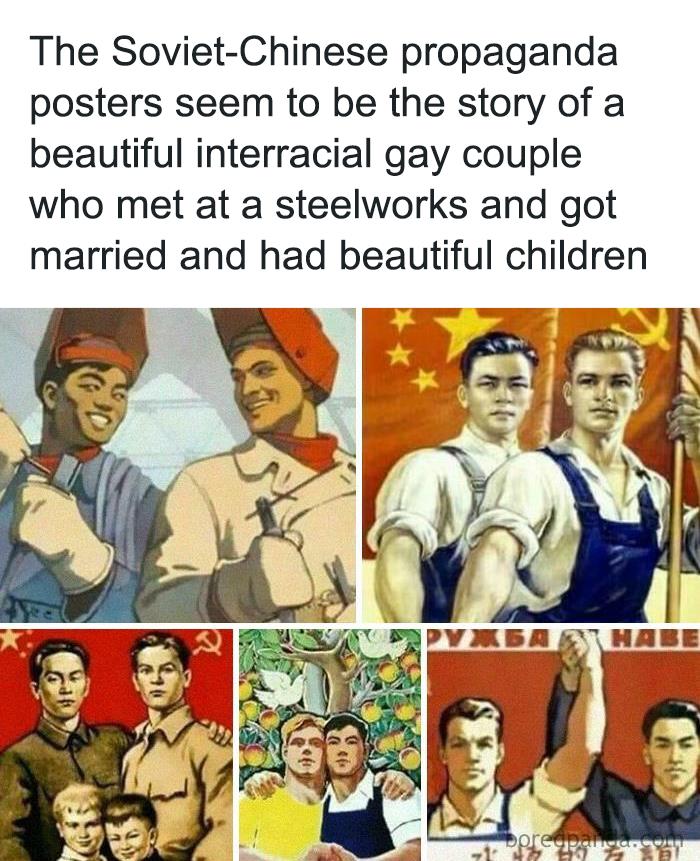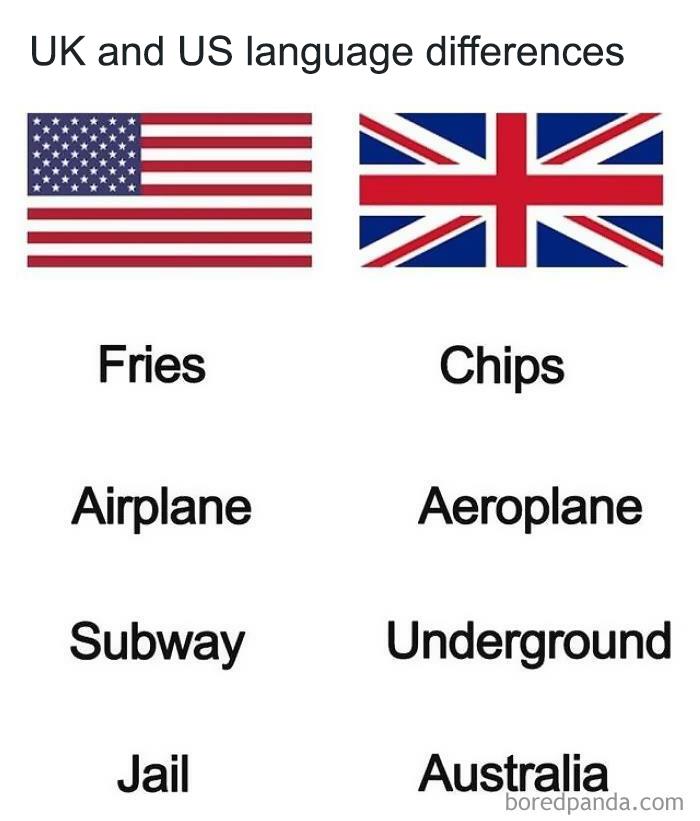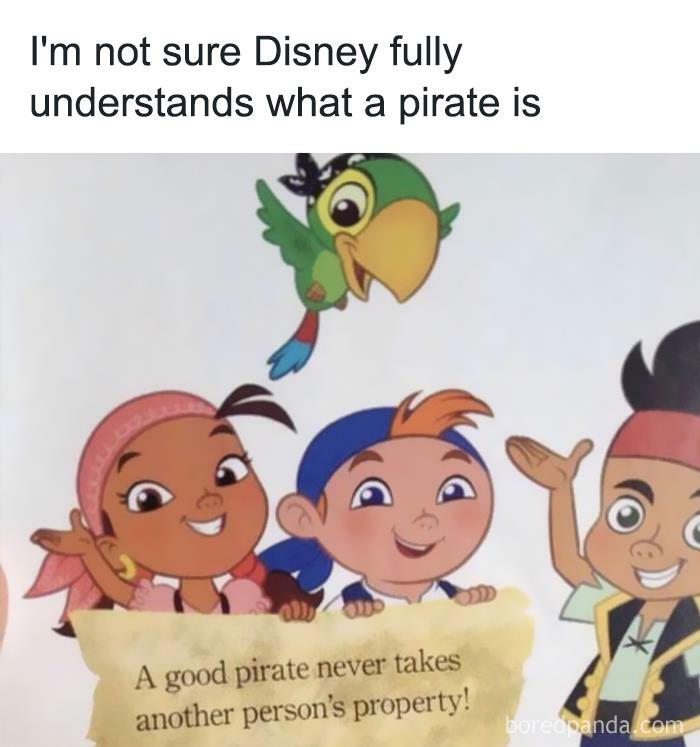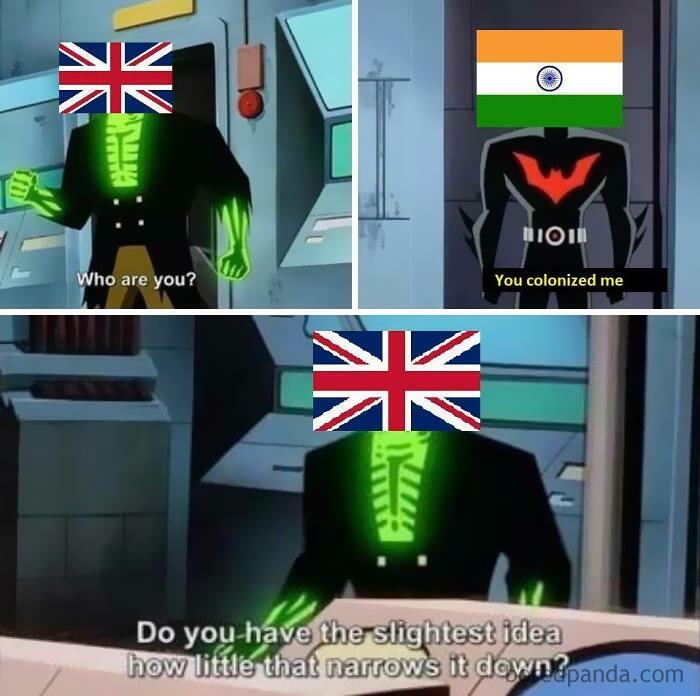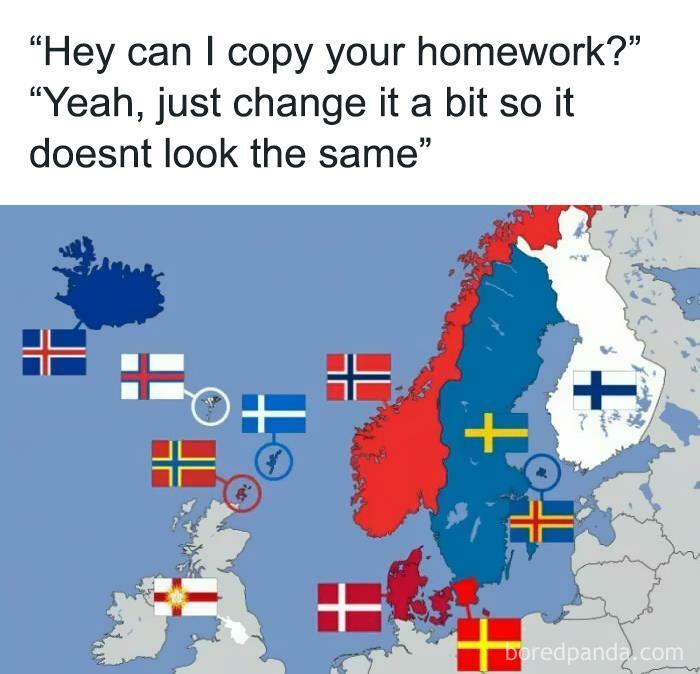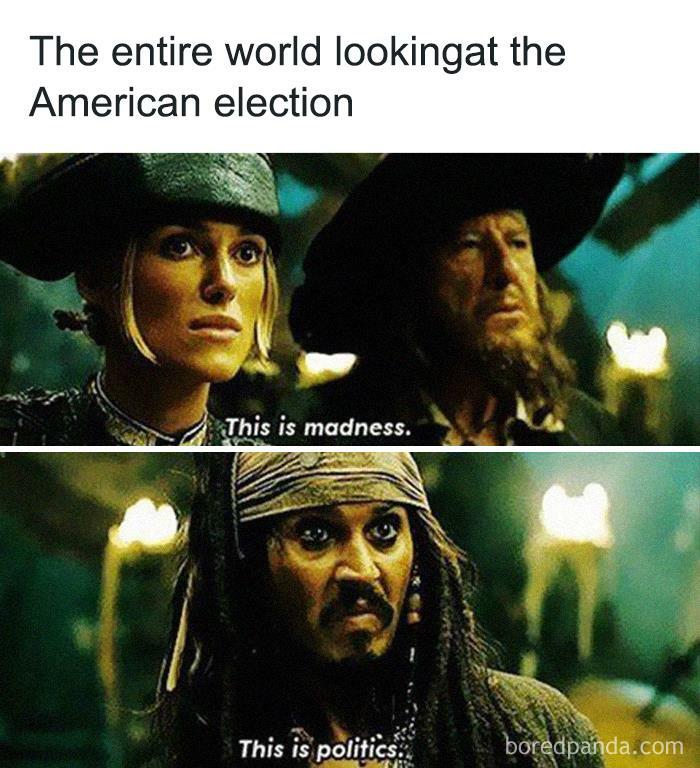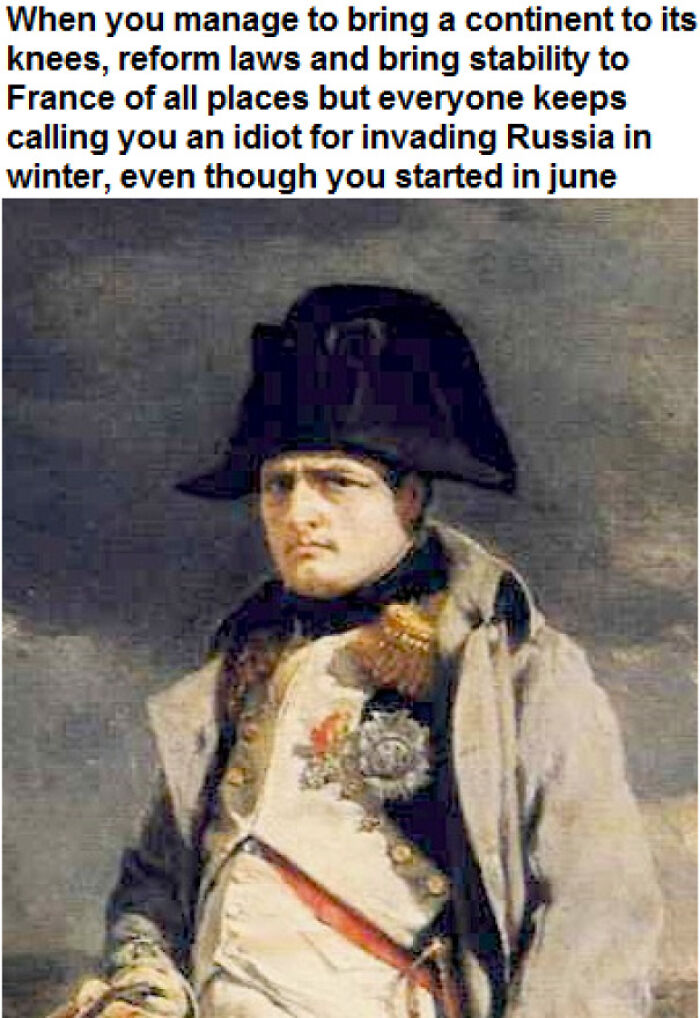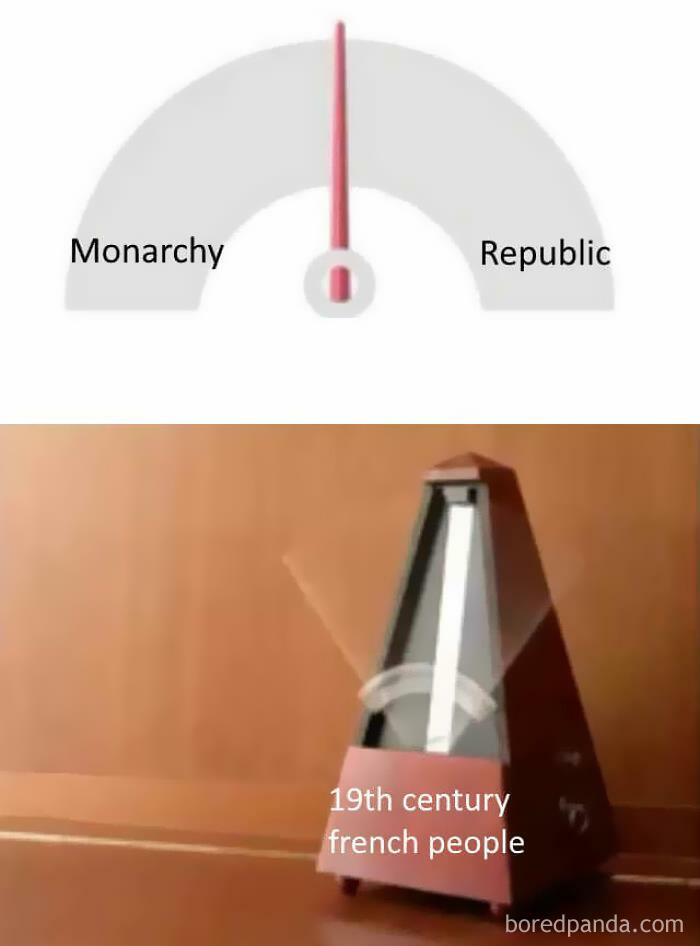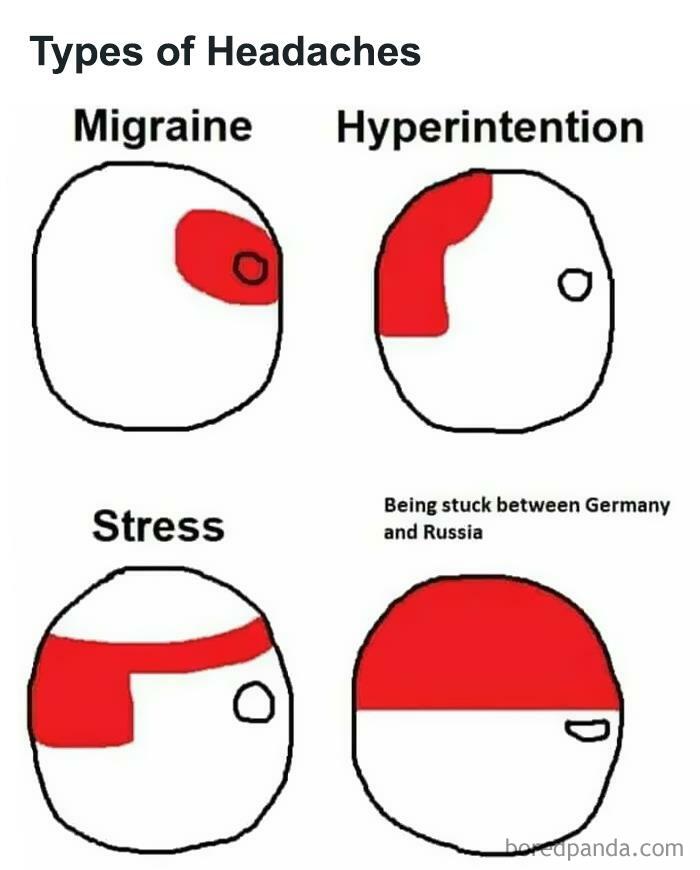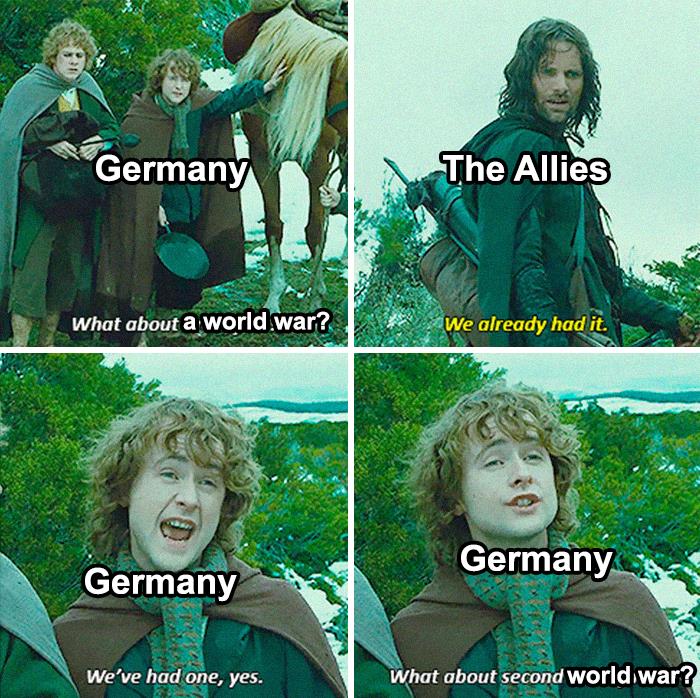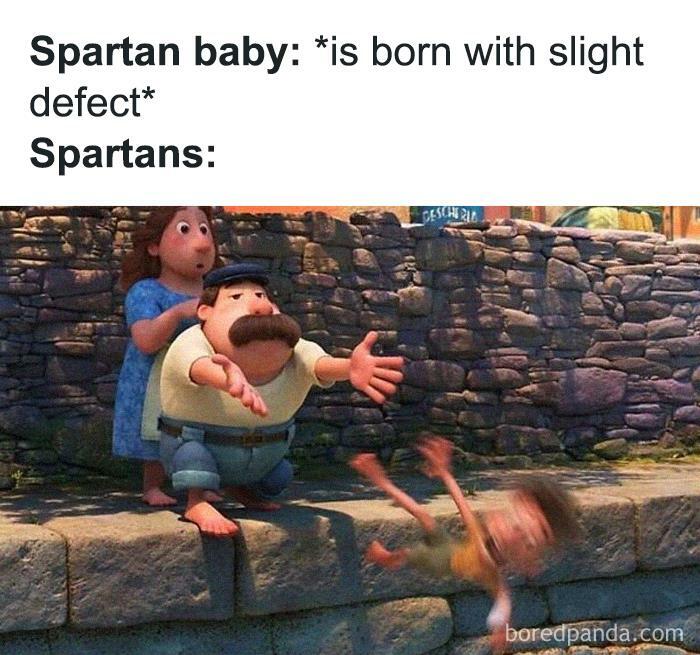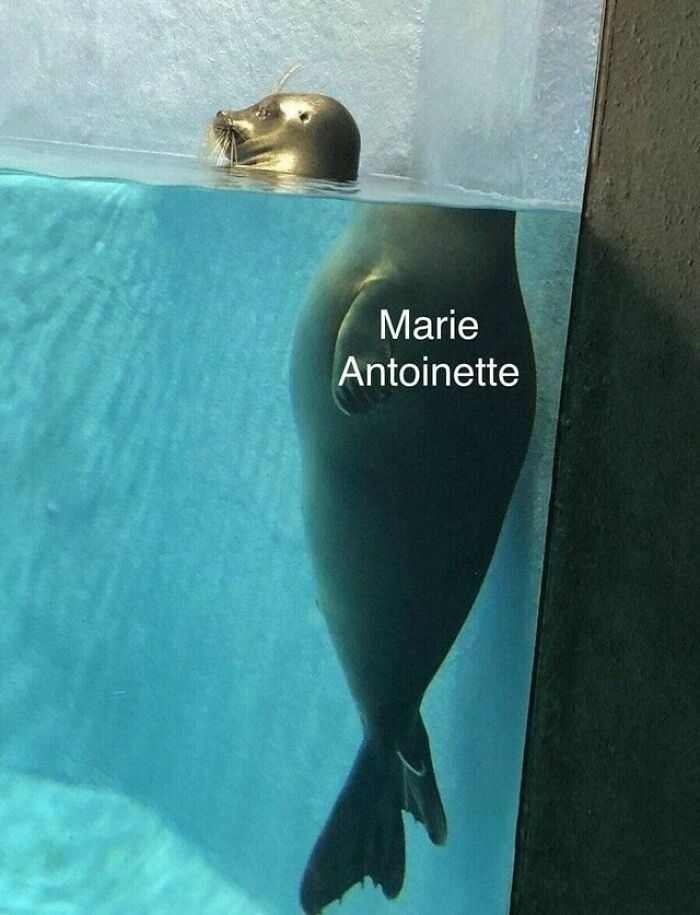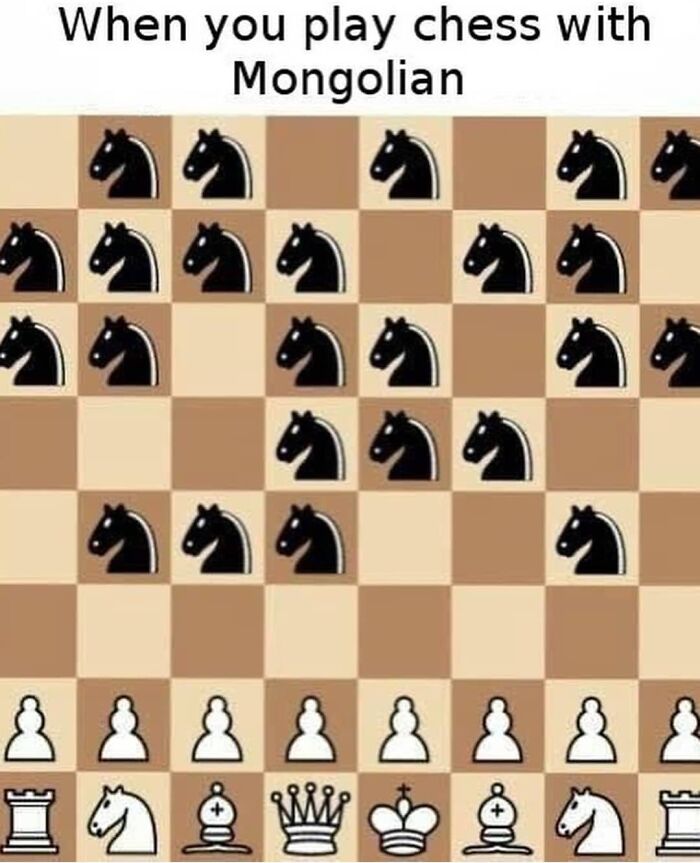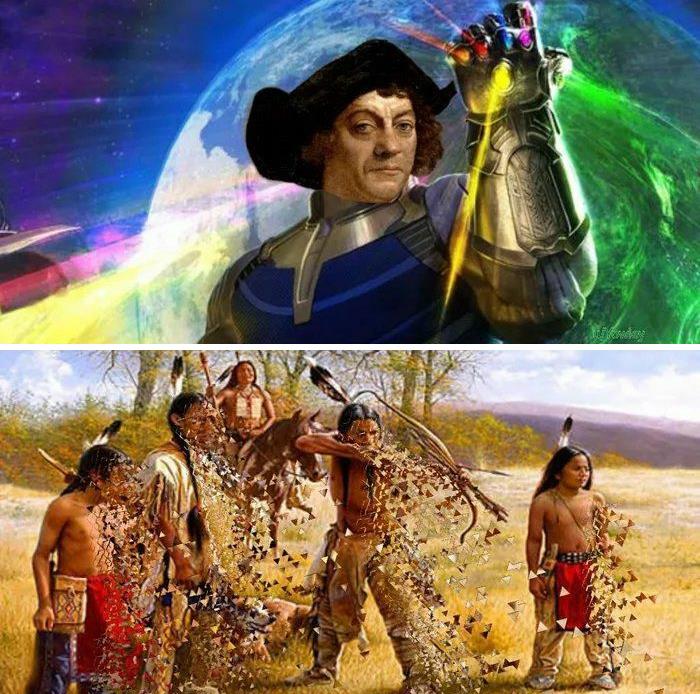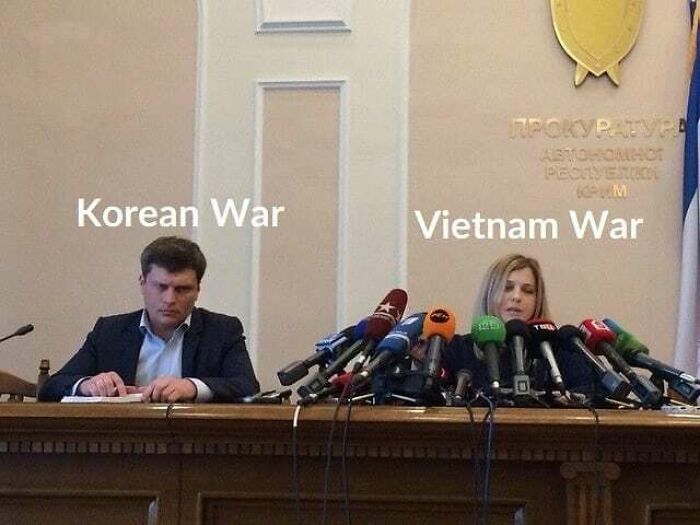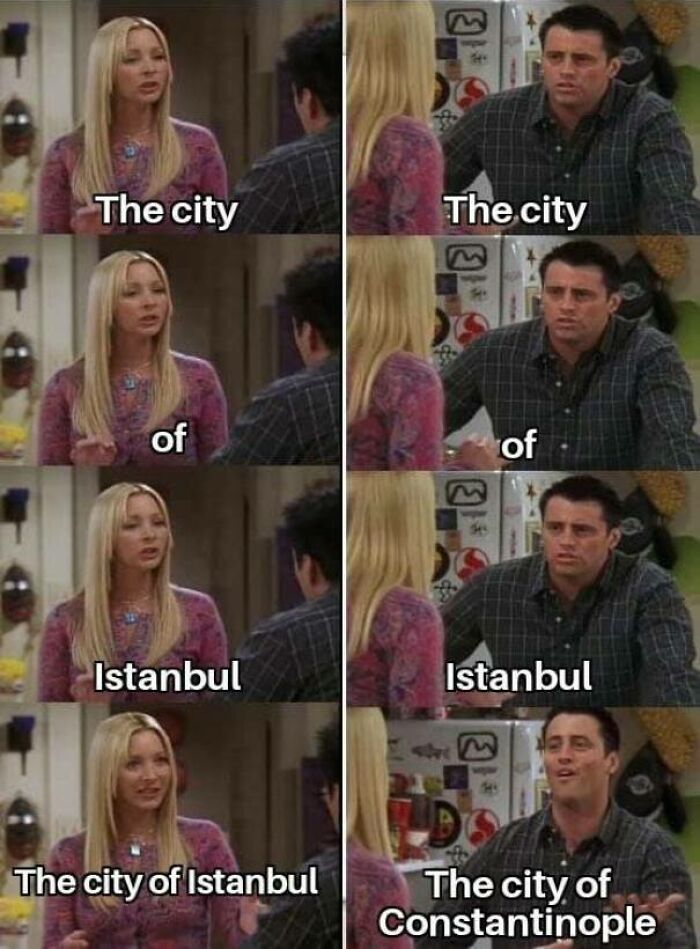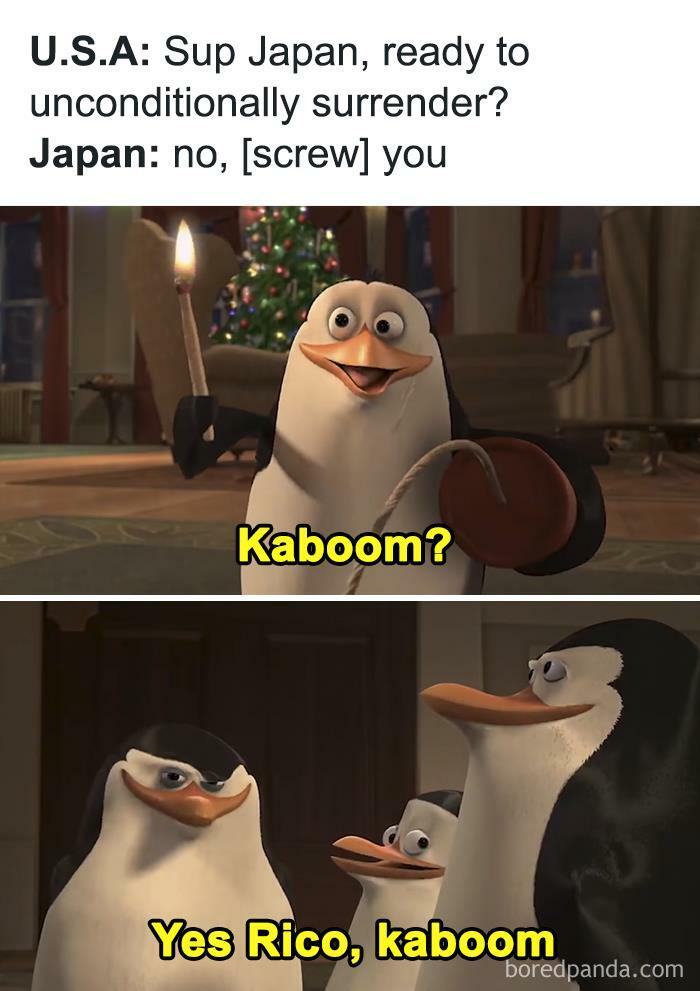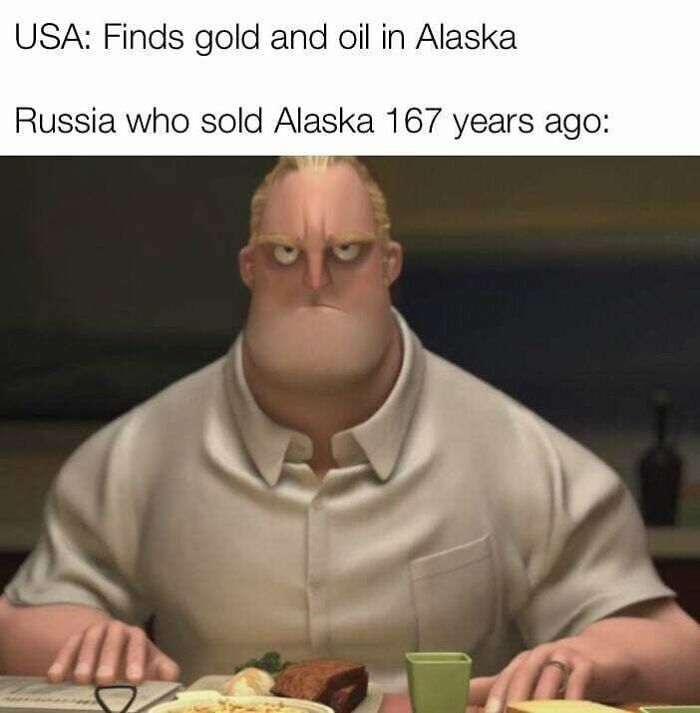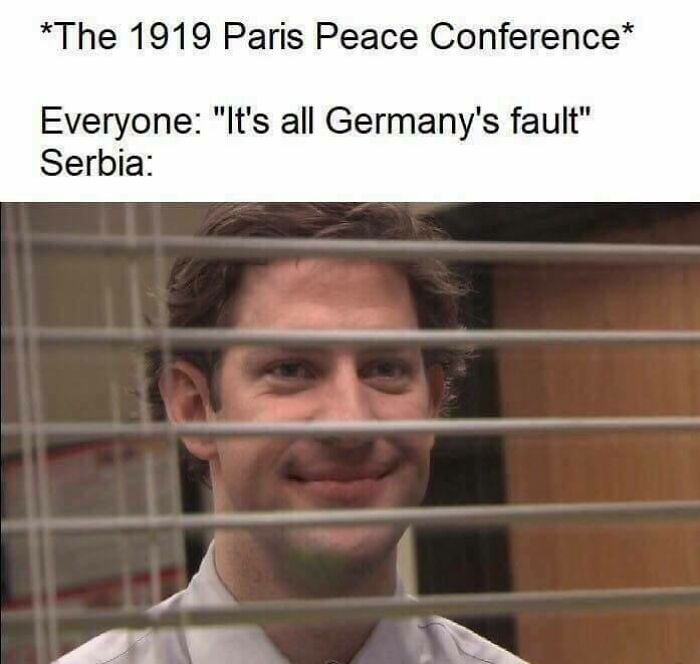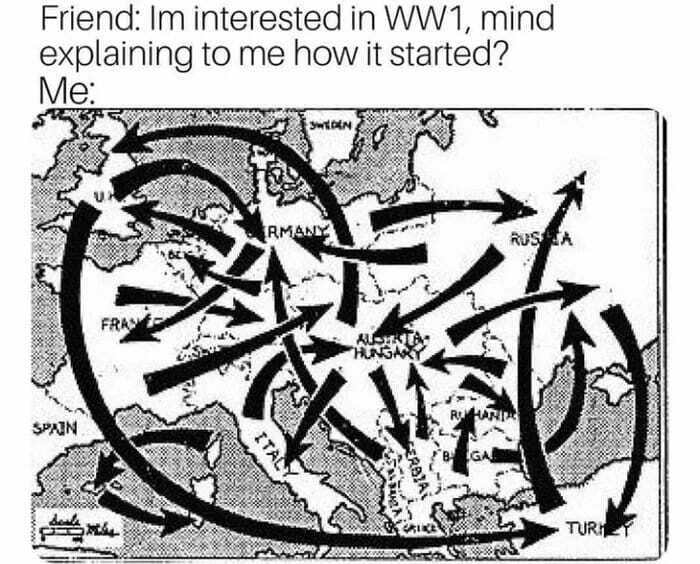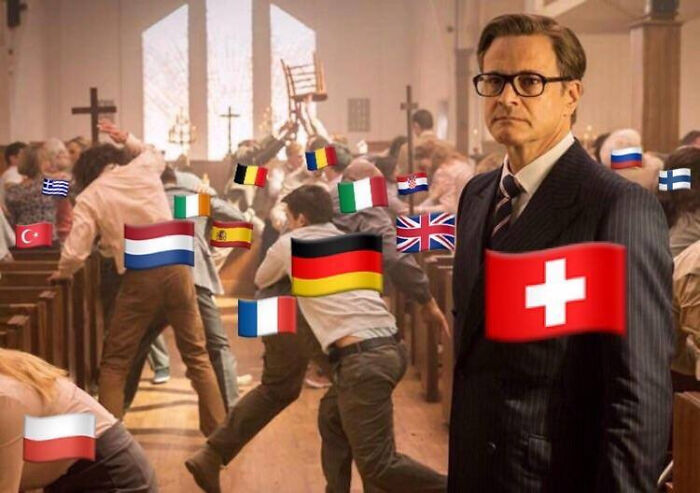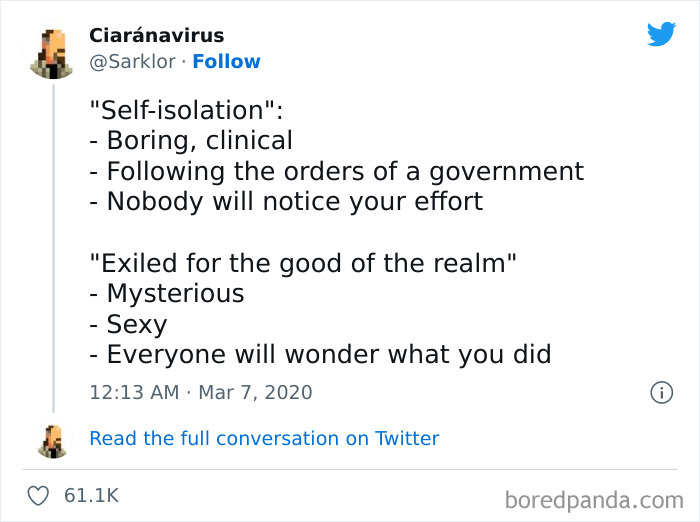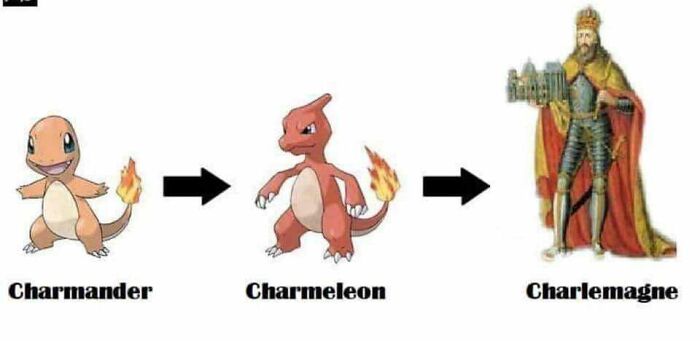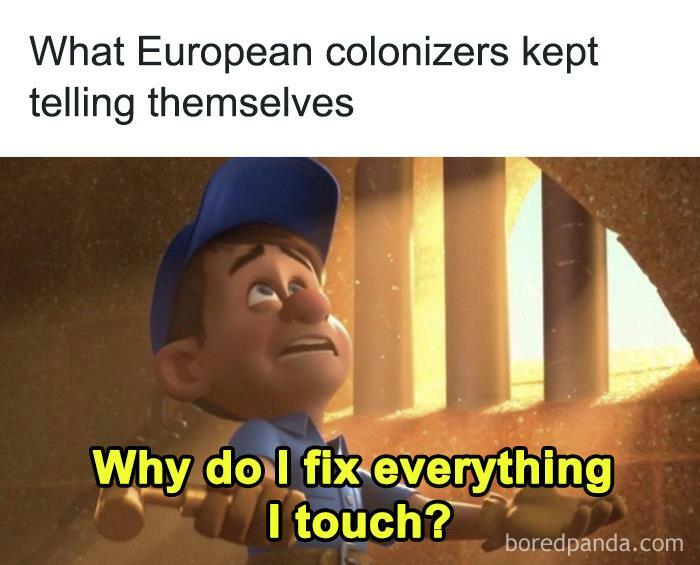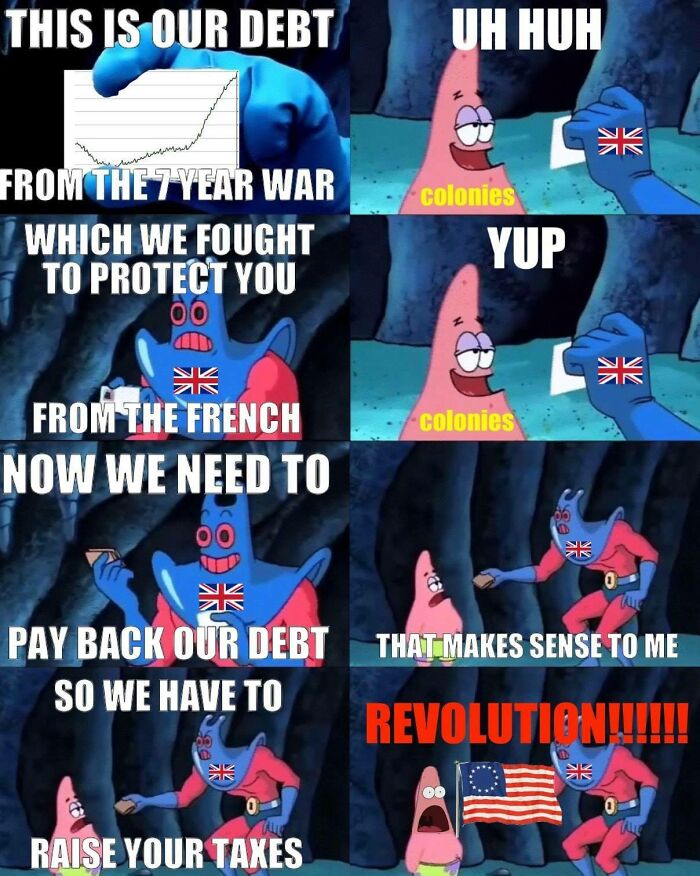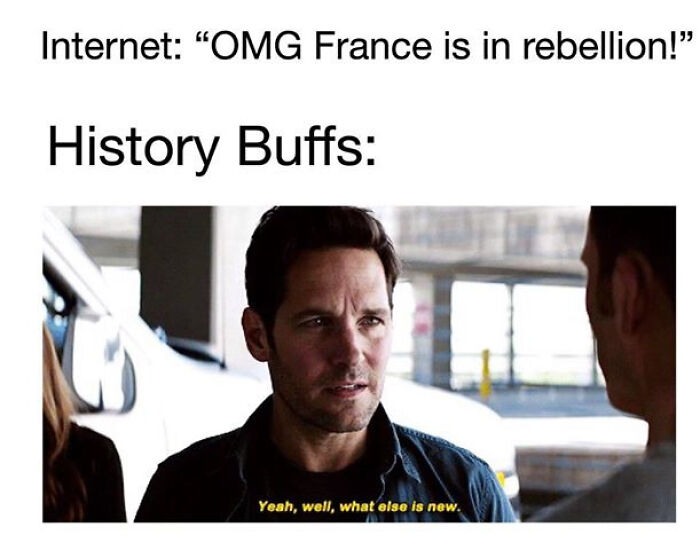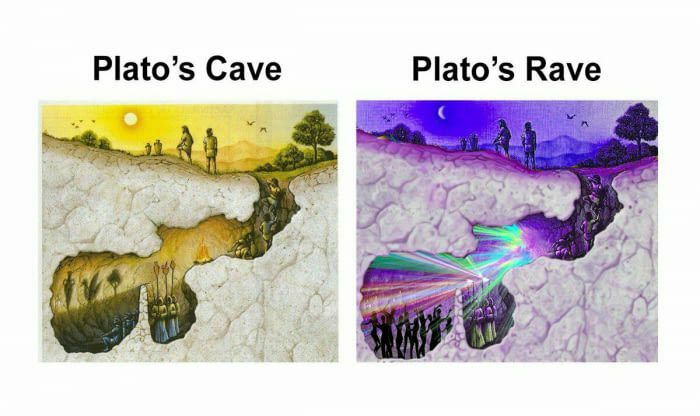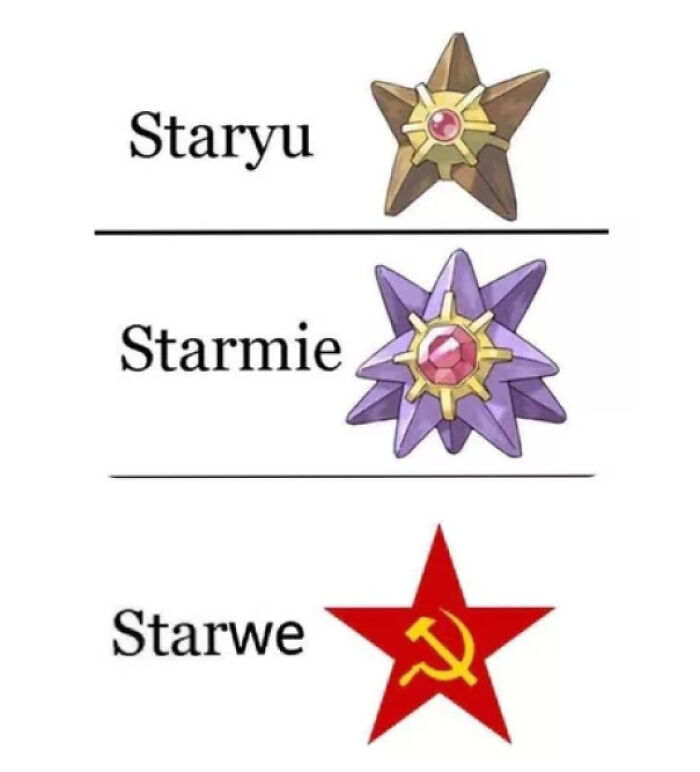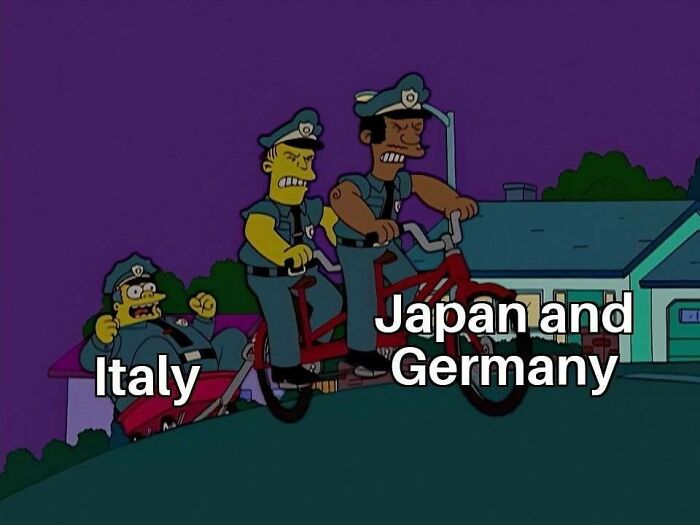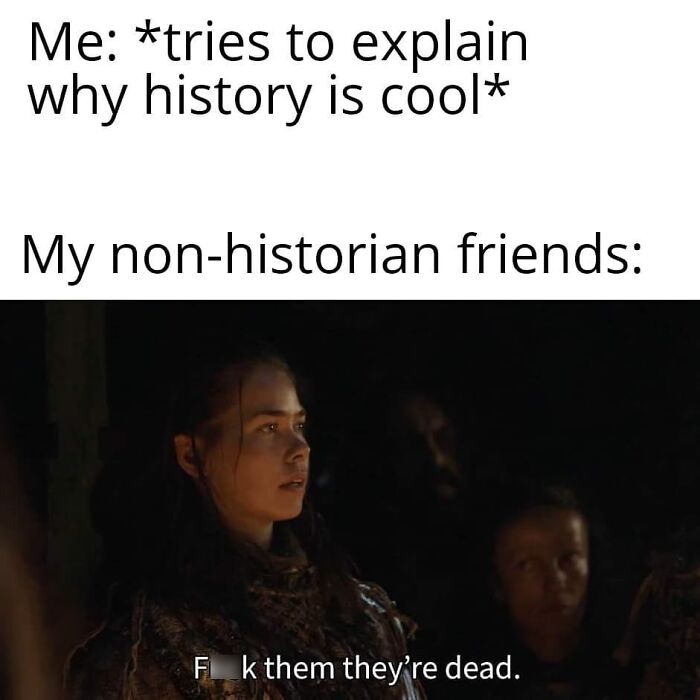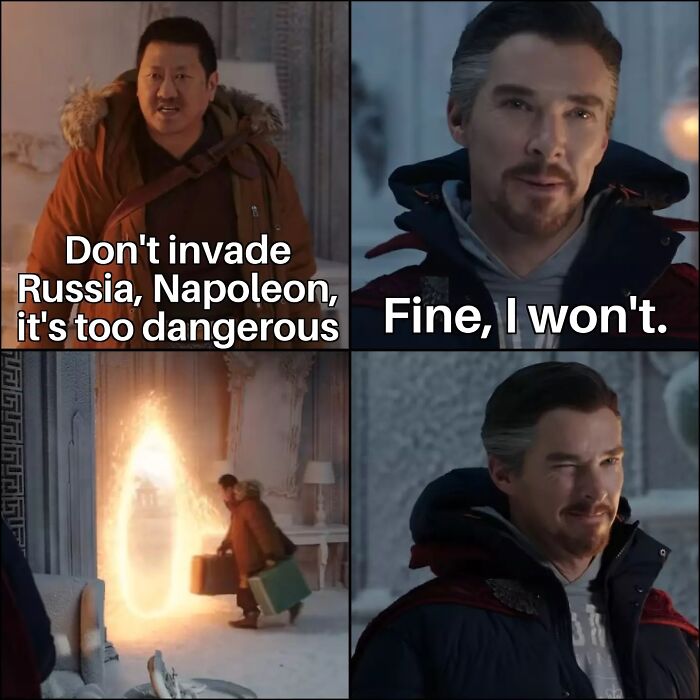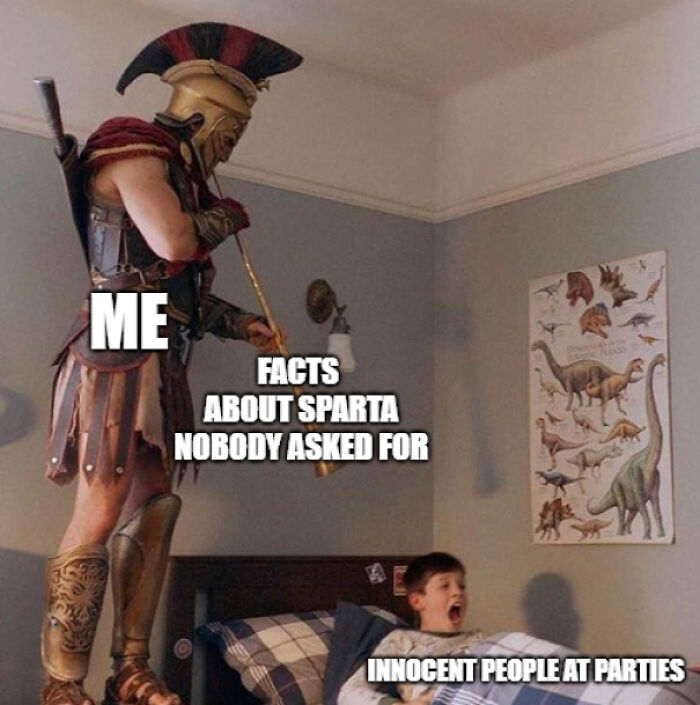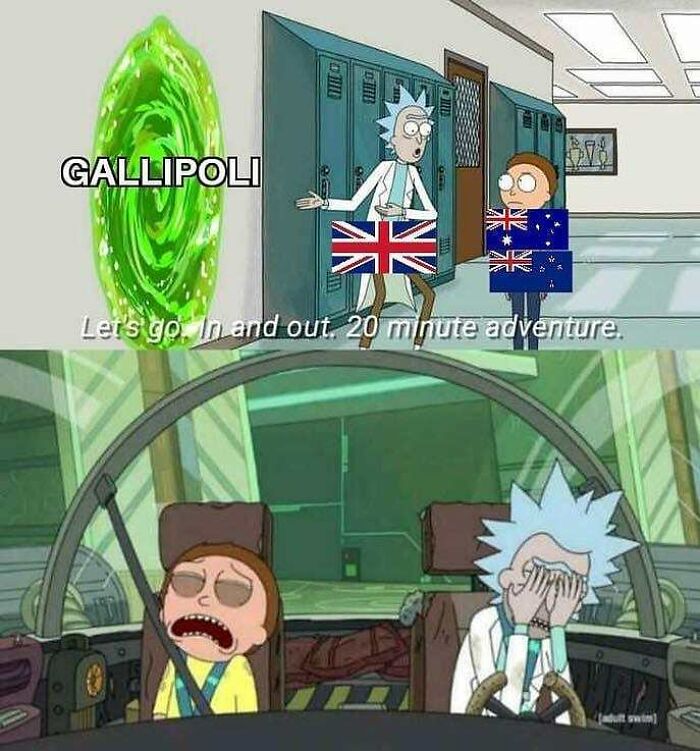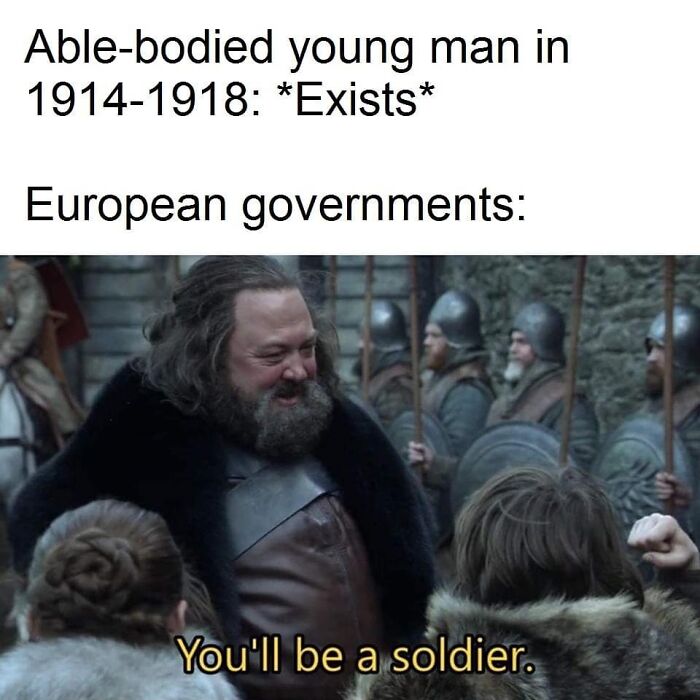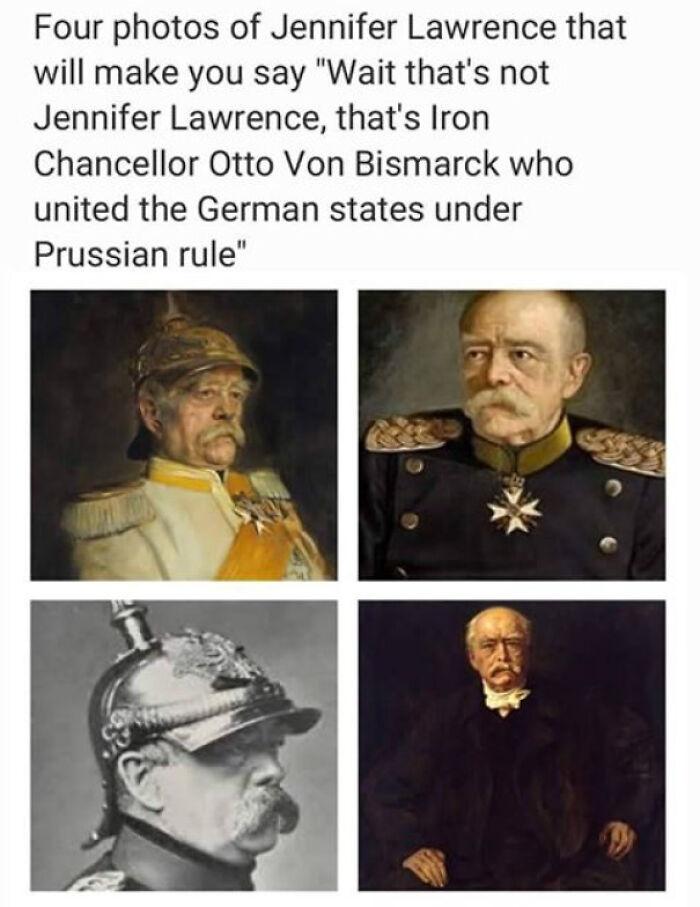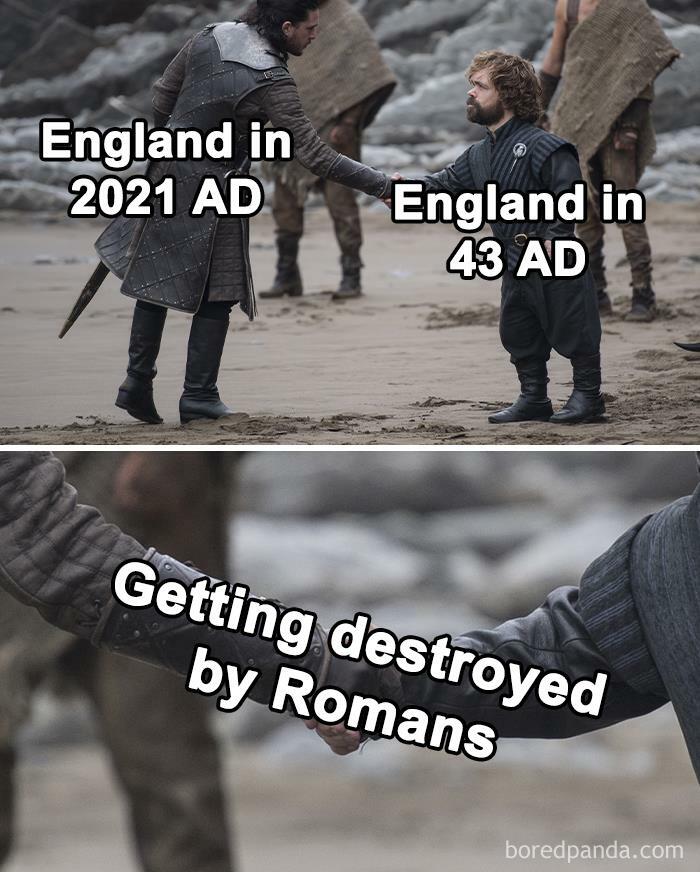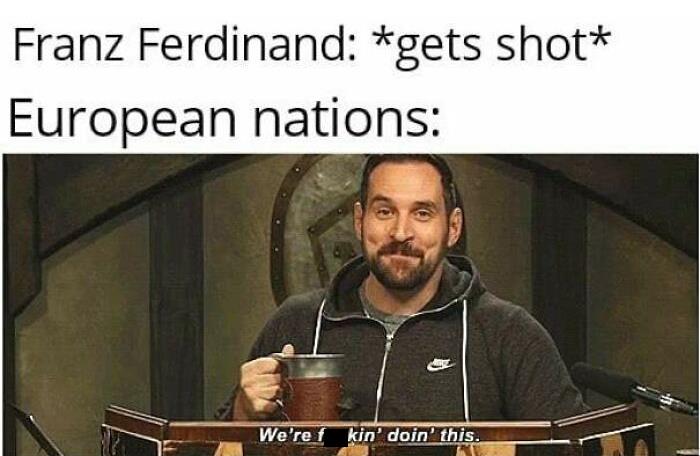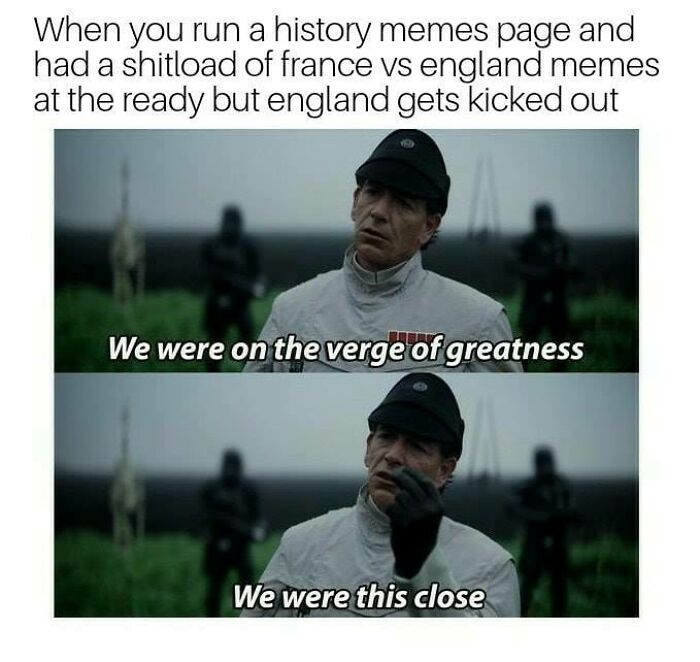History teaches us to analyze and explain past challenges. It allows us to see patterns that might've been invisible in the present otherwise, thus providing a crucial perspective for understanding (and solving!) current and future problems.
However, distant times, full of people that have been long dead might often seem like exactly that — distant. So let's make everything a little bit more relatable and take a look at a Facebook page called History Memes.
Offering what the name promises, it shows historic figures and the events they've been part of through well-known popular culture motifs, reminding us that we can always find common ground with another person, no matter if they're a peasant from the Middle Ages or an ancient Greek aristocrat.
More info: Facebook
This post may include affiliate links.
Jokes aside, I don't see any other story this poster could possibly be telling besides a beautiful interracial gay couple who met at a steelworks, got married, and had beautiful children. Is there something else going on here?
They could simply symbolize the union between two nations.
Load More Replies...I think these alone work as pride posters in their own right
Load More Replies...Both Communist systems were all about spreading the genes of their majority racial & ethnic majority into minority regions. For the Soviets, it was while Russian blood. For the Chinese, it's Han blood. The fact they make this look so gay is hilarious.
Funny enough, communism (at least in Poland) was far more accepting of woman's rights, lgbt and 'non whites' than current christian church influence is.
We managed to get in touch with the person behind History Memes, and they told us that the page isn't reposting content from elsewhere on the internet. They're creating the memes themselves.
"The only real criteria I have [for sharing a particular idea] is whether I find it funny and if it doesn't cross any line," the creator of the Facebook page told Bored Panda. "I don't want to get in trouble and I also think there are plenty of subjects you don't joke about. I usually find a picture or 'template' and then think of a historic event that'll go well with it."
I can hear forensic anthropologists everywhere muttering under their breath
"Mostly, the more common the knowledge about the period or event is, the better the post does," the person behind the page said. "So WWII memes do a lot better than obscure Dutch history posts, for example. I have a lot of American followers, which is funny since I'm from the Netherlands myself. So American history or Western history usually does better."
They started the page a long time ago and regularly made daily posts. "I think that helped [it to become as popular as it is] and I suppose my humor just clicked with people. I always stick to things I find funny and perhaps it's also a bit because it's all original content."
What they like most about running this history page is the fact that an obscure meme makes people ask questions and educate themselves. "It's just all in good fun for me!"
I'm Australian and the first two members of my family to come here were - yes - convicts. Two petty thieves who were deported to a colony in Tasmania. ...oh hey, that's a nice wallet. Can I hold it for you?
Hey Disney censored the owl house, this seems like another thing they will pull out of their rear
Interestingly, historian, college administrator, amateur homesteader, and writer Joshua Wilkey quite often uses memes in teaching. "I even sometimes assign my students to use memes as a way to present what they are learning in the classroom," he told Bored Panda for our earlier article on history memes.
In fact, memes have been around in some form or another for thousands of years.
In 2016, archeologists uncovered a mosaic from the 3rd century B.C. in what was the ancient city of Antiocheia. The piece has three frames and seems to depict a bathing scene. The first frame is of a servant preparing a bath; the second frame, a young man running away from taking the bath, being pursued by an older servant who is unable to catch him; the last scene, a “reckless” but seemingly happy skeleton of the young man is sitting casually with a jug of wine.
The inscription below him reads: "Be cheerful and live your life." So you could say it's the original YOLO.
Right, just keep nodding and slowly back off, and nothing will happen to you.
But why bother with history in the first place? Well, Joshua Wilkey said that "as an academic pursuit, history teaches important skills like critical reading and analysis. For the average person, though, history is an important way of understanding the context of what is happening in the present."
"I do not buy the argument that history repeats itself - and I think few professional historians would say that it does. It does, though, as Mark Twain once said, rhyme a lot. When one looks at the world as it is today, one cannot fully understand it absent knowledge of history," Wilkey explained.
Me during literally any football match, but especially when it comes down to penalties. I like to annoy my husband by saying that they could have saved a lot of match time if they’d just done the penalty shoot out at the start and not bothered with the rest.
"One cannot, for example, understand the Black Lives Matter movement without understanding the long history of civil rights activism in the United States. One cannot understand what is happening in Afghanistan without understanding the long history of that particular part of the world, specifically through the lens of imperialism. Current events do not happen in a vacuum. Trying to understand or react to them absent an understanding of the history is detrimental at best."
For those who want the list - Afghanistan, Antigua, Barbuda, Bahamas, Bahrain, Barabados, Belize, Botswana, Brunei, Cyprus, Dominica, Egypt, Eswatini, Fiji, Gambia, Ghana, Grenada, Guyana, India, Iraq, Israel, Jamaica, Jorda, Kenya, Kiribati, Kuwait, Lesotho, Libya, Malawi, Malaysia, Maldives, Malta, Mauritius, Myanmar, Nauru, Nigeria, Oman, Pakistan, Qatar, Saint Lucia, Saint Kitts and Nevis, Sain Vincent and Grenadines, Seychelles, Sierra Leone, Solomon Islands, Somaliland, South Yemen, Sri Lanka, Sudan, Tanganyika, Tonga, Trinidad and Tobago, Tuvalu, Uganda, UAE, US, Vanuatu, Zambia, Zanzibar, Zimbabwe. And those are just the colonies, protectorates (I havent the slightest idea what that means)and mandates that are now independent (according to Wikipedia)
Of course, that doesn't mean that you have to be familiar with every period of every civilization. "One of my favorite TV shows growing up was The Andy Griffith Show, and in one episode, Aunt Bee remarked that history must be harder to learn in the present because there's more and more of it being made every day," Wilkey recalled. "However, there are some good strategies to employ to learn the depth of history in a way that is useful for the present."
"Rather than broad surveys of history, whereby one attempts to learn the entire breadth of history for a given place, I think deeper dives are more useful. I prefer to study history topically rather than by place. For example, one can study the history of conflict, the history of racial inequality, the history of capitalism, or the history of imperialism, and follow the threads of those themes through both time and place, for a more comprehensive look at why things are the way they are."
The historian said that understanding how themes like economic inequality or political power have played out at multiple times and places is more useful for the average human than to learn facts about the history of a given place. "Ultimately, the goal should not be to learn history for the sake of being good at Jeopardy!, but for the sake of developing a more meaningful understanding of why things happened," Wilkey explained, adding that it's much more valuable than simply knowing what happened.
And it makes sense. You start making connections and developing ideas rather than just working on your memory. You start thinking.
like i know thats photoshop but i so wanna get dungarees for my cats lol
Didn’t he impregnate Danaë by turning into a shower of gold? How does that work?
Once you decide on a topic you want to dig into, you need to start collecting sources. "At the risk of having my professional historian card revoked, Wikipedia is a great place to go to learn the basics of a given event," Joshua Wilkey said. "At this point, it's rather more accurate than most easily accessible sources, including most online encyclopedias."
How it started: blows up a naval harbor. How it ended: we drop the sun on them twice
"Apart from that, I am a big fan of podcasts. Dan Carlin's Hardcore History is great for those who can devote substantial time to listening. Slow Burn is also fantastic, as is the podcast that accompanies the 1619 Project. This Land is wonderful for those who are interested in indigenous history. I could go on for days with podcast recommendations, but there are so many good ones out there, the possibilities are limitless. For print readers, ProPublica also has a wonderful deep dive into many important topics. I especially enjoyed their piece a few years ago titled 'Firestone and the Warlord' about the history of the rubber industry in Africa."
Un-fun fact: because of not having the ressources to either feed a family or to have a dowry, usually only the oldest son got married (the one that inherits after the parents) and sometimes daughters could not marry without dowry. So peasant and nobles alike often did not get married until their parents died and they were in their 30ies +. OR girls without dowries ended up living with their brothers family, or if noble, joined a convent.----
And making lame jokes about how hilariously short you were, even though you were actually of perfectly average height for an adult man at that time period.
@ Ellie McGrath that'll be a big fat NOPE. In case of an invasion in Switzerland, the entirety of Europe would burn already since we are kind of in the middle. And being neutral doesn't mean, we'll just roll over. We can and will defend ourselves, just like we did in the Middle Ages.
As for sourcing accurate materials, Wilkey said it's important to employ information literacy skills to vet any potential source.
"While there's much to be said about the elitist and often-problematic nature of academic gatekeeping, the solution is not for anyone to publish anything they want, but rather, for us to engage with the public as much or more than we engage with each other as academics."
The historian likes to tell his students that if they are not engaging members of the general public with their work, then the public will be engaged by idiots, liars, and fear-mongers. "The average reader should make it a point to ask why they should believe any given source (including academic literature!). The fact that they found it via social media is often an argument against believing it," he said.
However, if it's more memes that you're after, check out our piece on History Memes Explained, a cool social media project that not only collects but also dissects the best memes about our past.
That seems to be the answer to anything we can't readily explain. Aliens dude, it was the aliens.
Imagine what kind of civilization we would've been today if we hadn't gone through the dark ages in history. Actually some people's minds are still stuck there despite being born centuries later.
It was mostly because Benjamin Franklin sailed over and negotiated a bomb a$$ treaty using his spectacular social skills. Guy was a laugh riot, a storyteller, not one to say no to a drink or seven at a party, and brought with him tales of the American wilderness and newly minted customs and demonstrations of songs and dances that made French gentlemen roll on the floor laughing and women heave their corseted bosoms in lust at the exotic stranger. He got off the ship wearing a coonskin hat, you guys.
Why did they plant trees down the Champs D’Elyse? So the Germans could march in the shade.
I have given up on trying to understand WWI. It was about money and power and Germany lost.
Annabelle Timsit needs to timsitdown and do a little more research.
I don't know if I'm happy for the classy French weapon or unhappy for the waste of baguette.
Hahaha I love the nod to accuracy fellow pandas. Anything from a lot to bazillion. (Bazillion is my favourite).
Do people nowadays not know about MASH? Apart from all the jokes it's actually very informative abot the Korean War.
Germany had war declared on it by Britain, because Britain was friends with Belgium, who was being trespassed by Germany in order to get to France to kick France's a*s, because France was friends with Russia who was getting ready to kick Austria's a*s because Austria was getting ready to kick Serbia's a*s because someone from Serbia shot the leader of Austria's a*s. Or, actually shot him in the head... and Britain is currently friends with japan
I see Ireland is caught up in the melee. We should be like Switzerland. We're neutral. But still funny.
Of course, his rave pales in comparison to the perfect idea of his rave
In Killing Eve, Constantine was murdered with a pizza cutter. Very effective weapon.
do you know what happened at the communist school? Lenin teaches and Karl Marx! (I have no regrets)
No knowledge was lost. At the time of the fire, the Great Library, well... it wasn't so great. Knowledge was always copied and shared and the library was already falling out of favour. There were better things to learn in the land to the East. Arabia was the centre of excellence when it came to knowledge at that time.
Now wouldn't that make it The Pervert Union instead? In which case, the logo is wrong too. Should've been a dildo and whip. The star is fine I guess.
@Mohammad Omar, @Da Dragon Queen, @AsexualShrimp : The French state is very attached to secularism and considers that religion should remain in the private sphere and should not extend into public life, but a few months ago a mayor authorized the wearing of the burkini in swimming pools of his municipality. The wearing of this particular garment is understood by many in France as an ostentatious sign of belonging to a religion, which is why the decree of this mayor was canceled by the Council of State and the wearing of the burkini prohibited.
English is still a strange language. Remove 1 letter and the sound changes totally.
The longer he stays in power, the more he starts looking like Napoleon, and that's worrying to say the least.

 Dark Mode
Dark Mode 

 No fees, cancel anytime
No fees, cancel anytime 







